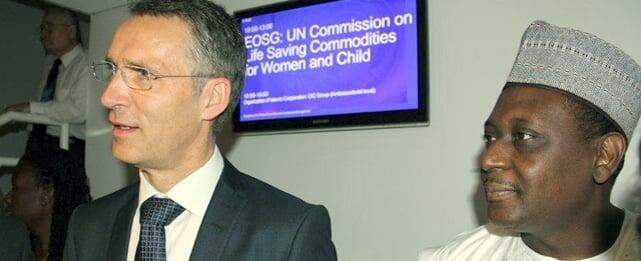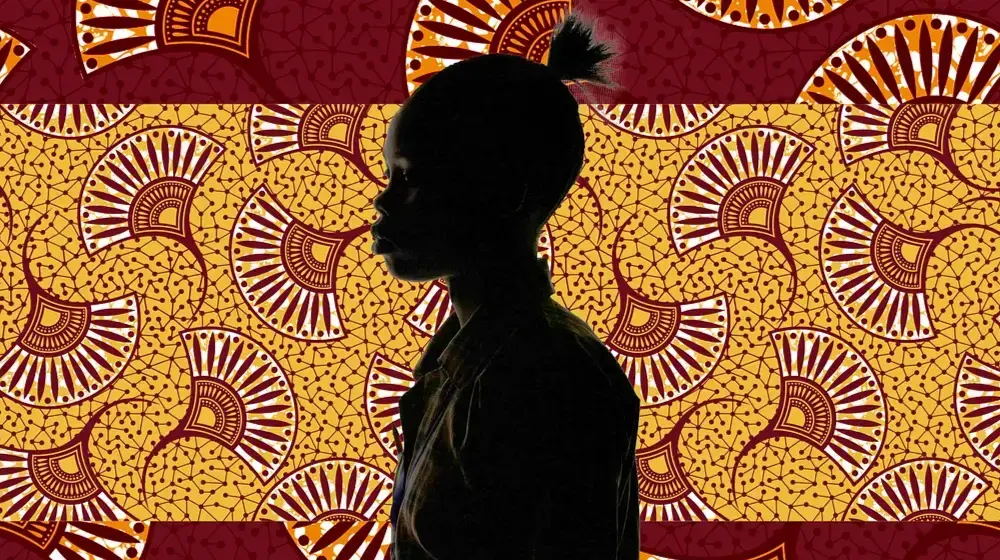New York, 22 May 2012 — Affordable, life-saving medicines and health supplies with the potential to save millions of lives are not reaching the children and women who most need them. To help change this, members of the United Nations Commission on Life-Saving Commodities for Women and Children will today review and finalize recommendations to help increase access, reduce costs, and increase demand for 13 products.
Co-chaired by Nigerian President Goodluck Jonathan and Norwegian Prime Minister Jens Stoltenberg, the Commission aims to help overcome persistent barriers to the production, distribution and rational use of 13 often overlooked, life-saving commodities, including oxytocin to stop mothers bleeding after childbirth, oral rehydration salts and zinc to treat diarrhoea, and antibiotics like amoxicillin to treat pneumonia in newborns. They will focus on the needs of countries where the most women, newborns and children under the age of five die from preventable causes.
“If these 13 essential health commodities are properly distributed and used we can save the lives of some 2.5 million women and children by 2015,” said UNICEF Executive Director Anthony Lake, Vice-Chair of the Commission. “This is an opportunity we cannot afford to waste.”
Millions of maternal and child deaths are preventable or treatable with simple and affordable health products. Globally, about 800 women die every day from complications of childbirth, including maternal bleeding and eclampsia; more than 1.3 million children die from pneumonia alone; and more than 8 million of the 136 million women who give birth each year suffer from excessive bleeding after childbirth. This causes one in every four maternal deaths each year and accounts for more maternal deaths than any other individual cause.
“The availability of affordable medicines, contraceptives and other health supplies is an essential part of a well-functioning health system that is able to serve people in an equitable manner,” said UNFPA Executive Director Dr. Babatunde Osotimehin, Vice-Chair of the commission . “Ensuring access to these critical supplies saves lives and improves the health of women, children and young people.”
The Commissioners, who were supported by a technical working group, looked at three key areas related to the 13 commodities: market shaping, the regulatory environment, and best practices and innovation. The Commission’s recommendations, which include scaling up innovative technologies, strategies to create demand, and ways to scale up access to the vital health supplies, will be announced later this year and be championed by commissioners at the highest levels of government, international development agencies, civil society and the private sector.
Commissioners
1. Sir Andrew Witty, Chief Executive Officer, GlaxoSmithKline
2. Agnès Saint-Raymond, Head of Human Medicines Special Areas, European Medicines Agency
3. Bob Collymore, Chief Executive Officer, Safaricom
4. Christopher Elias, President for Global Development, Bill and Melinda Gates Foundation
5. Dan Brutto, President, UPS International
6. Gary Cohen, Executive Vice President, Becton Dickson (BD)
7. Hassan Mshinda, Director General Tanzania Commission for Science and Technology
8. Heather Bresch, CEO, Mylan Inc.
9. Jamie Cooper-Hohn, President and CEO, Children's Investment Fund Foundation
10. Jasmine Whitbread, Chief Executive Officer, Save the Children International
11. Julio Frenk, Chair, Partnership for Maternal, Newborn and Child Health
12. Kenneth C. Frazier, President and CEO, Merck
13. Rajiv Shah, Administrator, United States Agency for International Development
14. Ray Chambers, UN Secretary-General's Special Envoy for Malaria
15. Li Dongjiu (Robert Lee), President, Shanghai Fosun Pharmaceutical Development Co., Ltd.
16. M.K. Bhan, Secretary to the Government of India Department of Biotechnology
17. Michael Anderson, Director-General for Policy and Global Programmes, UK Department for International Development
18. Per Heggenes, CEO, IKEA Foundation
19. Teguest Guerma, Director General, AMREF
20. H.E. Zainab Hawa Bangura, Minister of Health and Sanitation, Sierra Leone
About the UN Commission on Life-saving Commodities for Women and Children
The Commission was created by the UN Secretary-General, Mr. Ban Ki-moon, under the auspices of the Every Woman Every Child movement. The Commission aims to increase access to life-saving medicines and health supplies for the world’s most vulnerable people. The Commission is co-chaired by President Goodluck Jonathan of Nigeria and Prime Minister Jens Stoltenberg of Norway, and UNICEF and UNFPA serve as vice-chairs.
About Every Woman Every Child
Launched by UN Secretary-General Ban Ki-moon during the United Nations Millennium Development Goals Summit in September 2010, Every Woman Every Child aims to save the lives of 16 million women and children by 2015. It is an unprecedented global movement that mobilizes and intensifies international and national action by governments, multilaterals, the private sector and civil society to address the major health challenges facing women and children around the world. Every Woman Every Child puts into action the Global Strategy for Women’s and Children’s Health, which presents a roadmap on how to enhance financing, strengthen policy and improve service on the ground for the most vulnerable women and children. For more information visit www.everywomaneverychild.org
About UNICEF
UNICEF works in 190 countries and territories to help children survive and thrive, from early childhood through adolescence. The world’s largest provider of vaccines for developing countries, UNICEF supports child health and nutrition, good water and sanitation, quality basic education for all boys and girls, and the protection of children from violence, exploitation and AIDS. UNICEF is funded entirely by the voluntary contributions of individuals, businesses, foundations and governments. For more information about UNICEF and its work visit: www.unicef.org
About UNFPA
UNFPA, the United Nations Population Fund, is an international development agency that promotes the right of every woman, man and child to enjoy a life of health and equal opportunity. UNFPA supports countries in using population data for policies and programmes to reduce poverty and to ensure that every pregnancy is wanted, every birth is safe, every young person is free of HIV/AIDS, and every girl and woman is treated with dignity and respect. For more information about UNFPA and its work visit: www.unfpa.org
For more information contact:
Christian Moen, Communication Specialist, UNICEF, Tel: + 1 212 326 7516, cmoen@unicef.org
Etienne Franca, Media Specialist, UNFPA, Tel: +1 212 297 5208, franca@unfpa.org



